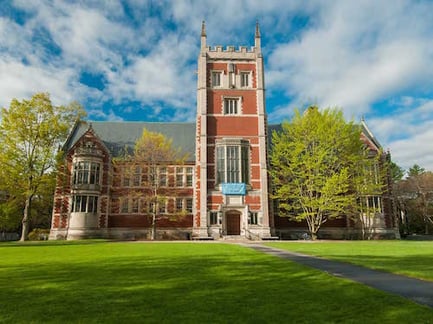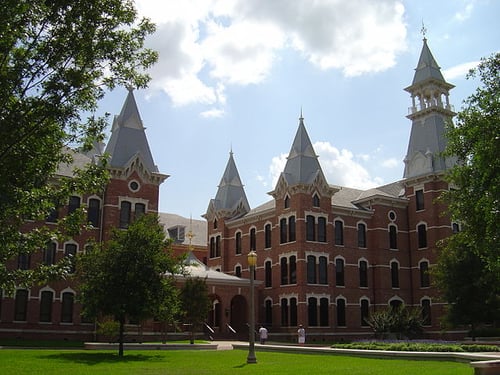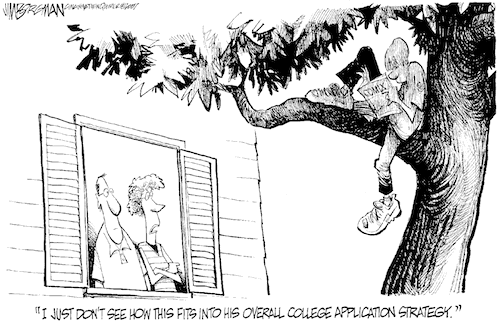When Do You Hear Back From University of Miami Early Action
Would you like to know where you'll be going to college as soon as possible? If you apply early action, then you might have your plans all set by winter break of your senior year. That's a big leap forward compared with waiting for regular notifications in March or April! A large number of schools offer an early action deadline in addition to a regular decision deadline. This guide will go over what you need to know about applying early action and give you a comprehensive list of all the schools that offer it. To start, how does early action work? Early action can be a great option if you've done your college research and have prepared all the different parts of your application by the November deadline. Data shows that a greater percentage of early action candidates get accepted than regular decision candidates. However, this higher admission rate might reflect the competitiveness of early action applicants rather than suggest that applying early gives you a special advantage. A good rule of thumb to go by is this: apply early if you're organized and have a strong application ready to go. Wait until regular decision if your application would be stronger with a couple more months of preparation. Remember, your highest priority should always be to send the best application you can. The most common deadlines for early action are November 1 and November 15. You'll typically hear back from these colleges in mid-December. Hopefully, the news makes for a happy New Year! Even though you hear back early, you're not obligated to respond to an offer of acceptance any earlier than the national response date, which is May 1. So feel free to hang onto that acceptance letter as you wait to hear back from the rest of the colleges you applied to. You can then compare offers and financial aid packages once you've received all your admissions decisions. Just like with regular decision, your application may be accepted or denied. But there's also a third option: getting deferred. This means that your application will be pushed into the regular decision pool to be reviewed again in February or March. If you're deferred and remain very interested in the school, you could send along mid-year grades or test scores if you think they'll help your application. You could also call the admissions office to find out whether there's anything you can send to strengthen your candidacy. For the most part, you can apply to as many early action colleges as you want; however, a few schools have restrictive or single-choice early action, which means that you can't apply early action anywhere else. (Note that you can still apply regular decision elsewhere.) Schools with restrictive early action policies include Harvard, Stanford, and Yale. Want to build the best possible college application? We can help. PrepScholar Admissions is the world's best admissions consulting service. We combine world-class admissions counselors with our data-driven, proprietary admissions strategies. We've overseen thousands of students get into their top choice schools, from state colleges to the Ivy League. We know what kinds of students colleges want to admit. We want to get you admitted to your dream schools. Learn more about PrepScholar Admissions to maximize your chance of getting in. Can't wait to find out which campus you'll be admiring fall foliage on? Applying early action might be for you! Below is the complete list of schools with early action, organized alphabetically by state. Some popular schools include Caltech, MIT, Georgetown, UNC, the University of Chicago, the University of Michigan, Notre Dame, UVA, and Villanova. Search for your school of interest by state, or use the ctrl + F function on your keyboard to type in the first few letters of the school and be brought right to it. Note: There are currently no schools in Alaska, Arizona, Hawaii, Kansas, Missouri, Montana, Nebraska, Nevada, North Dakota, South Dakota, or Wyoming with Early Action admissions. We'll be sure to update this article if this changes. Saint Joseph's College of Maine As you can see, there are a lot of early action schools. But does it give you an advantage to apply early to a school? The short answer is yes. Applying early can communicate your enthusiasm for the school and highlight your commitment to going there. Moreover, schools tend to accept more early action applicants than they do regular decision applicants so they can get a higher yield. Yield refers to the percentage of students who accept their offers of admission. Since early action applicants are serious about attending that school, they're more likely to accept an offer of admission. In terms of yield, the more students who accept their offers of admission, the higher a school's yield will be. And the higher a school's yield is, the easier it will be to predict enrollment numbers and avoid having to make a waitlist. At the same time, applying early doesn't necessarily make poor grades or low SAT/ACT scores look better, especially since early action students tend to be some of the strongest applicants. If you choose to apply early action, then you have to immerse yourself in college planning a few months earlier than you would for regular decision deadlines (though either way, you'll benefit from preparing early!). The parts that require especially early planning are the SAT/ACT, your recommendation letters, and your personal essay. In the fall, you'll also want to submit your transcript request form to your guidance office and take your time filling out the Common Application or school's individual application. Here's a brief timeline showing you how to apply early action. For the SAT/ACT, it's a good idea to leave yourself plenty of SAT/ACT test dates. Students almost always improve when they retake the SAT/ACT, especially if they do focused, targeted test prep in-between test dates. If you apply early action, your last opportunity to take the ACT is September, while your last chance to take the SAT is October (both during your senior year). Since this is right up to your early action deadline, you probably won't be able to view your scores before deciding whether or not to send them. With all the other busy things going on in the fall of your senior year, there's no doubt it's better to take the SAT/ACT earlier than this. We suggest taking the SAT/ACT first in the fall of your junior year, again in the spring of your junior year, and a third time (if needed) in the summer or fall after your junior year. Think about how much time you can devote to test prep and how many times you'd like to take the tests to achieve your SAT/ACT target scores. As you can see, planning out your SAT/ACT could start more than a year before your actual early action deadline! In terms of recommendation letters, give your teachers and/or counselor at least one month to write your letter. This means you should ask for your recs before October 1 your senior year. It can be a good idea, too, to ask at the end of your junior year, since these teachers will remember you most clearly at this point. They'll likely appreciate how on top of college applications you are! Just like with letters of rec, you want to spend some time planning and writing your personal essay and any other supplemental essays. I recommend working on it over the summer. Even reading essay prompts can help you begin brainstorming potential topics. You can then spend a few months drafting, getting feedback, and revising your essay until it's ready for submission. Finally, in September and October, you can work on the rest of your application, proofreading all the information in it and writing about your extracurricular activities in a compelling manner. By starting the application process in the spring of your junior year (earlier including the SAT/ACT), you should be ready with a thoughtful and well-executed application by November for sure! Want to build the best possible college application? We can help. PrepScholar Admissions is the world's best admissions consulting service. We combine world-class admissions counselors with our data-driven, proprietary admissions strategies. We've overseen thousands of students get into their top choice schools, from state colleges to the Ivy League. We know what kinds of students colleges want to admit. We want to get you admitted to your dream schools. Learn more about PrepScholar Admissions to maximize your chance of getting in. Do you have your sights set on the Ivy League? Learn what it takes to get into Harvard and other highly selective schools from this Harvard alum. Now that you know which schools offer early action, check out this guide on all the early action deadlines! It goes over the most popular early action schools and offers a comprehensive list of all the colleges with early action deadlines. Are you also interested in early decision? This guide covers all early decision schools and their deadlines. Want to improve your SAT score by 160 points or your ACT score by 4 points? We've written a guide for each test about the top 5 strategies you must be using to have a shot at improving your score. Download it for free now: 
What You Need to Know About Early Action



Complete List of Early Action Schools by State
Alabama
Arkansas
California
Colorado
Connecticut
Delaware
District of Columbia
Florida
Georgia
 Georgia Tech (Davidhermanns/Wikimedia Commons)
Georgia Tech (Davidhermanns/Wikimedia Commons) Idaho
Illinois
Indiana
Iowa
Kentucky
Louisiana
Maine
Maryland
Massachusetts
Michigan
 University of Michigan in Ann Arbor
University of Michigan in Ann Arbor Minnesota
Mississippi
New Hampshire
New Jersey
New Mexico
New York
North Carolina
Ohio
Oklahoma
Oregon
Pennsylvania
Rhode Island
South Carolina
Tennessee
Texas
 Baylor University in Waco, Texas
Baylor University in Waco, Texas Utah
Vermont
Virginia
Washington
West Virginia
Wisconsin

Timeline for Applying Early Action to College
Step 1: Take the SAT/ACT
Step 2: Ask for Letters of Recommendation
Step 3: Plan and Begin Writing Your College Essay
Step 4: Finish Your Application


What's Next?



About the Author
Rebecca graduated with her Master's in Adolescent Counseling from the Harvard Graduate School of Education. She has years of teaching and college counseling experience and is passionate about helping students achieve their goals and improve their well-being. She graduated magna cum laude from Tufts University and scored in the 99th percentile on the SAT.
When Do You Hear Back From University of Miami Early Action
Source: https://blog.prepscholar.com/early-action-schools-and-colleges-complete-list
0 Response to "When Do You Hear Back From University of Miami Early Action"
Post a Comment